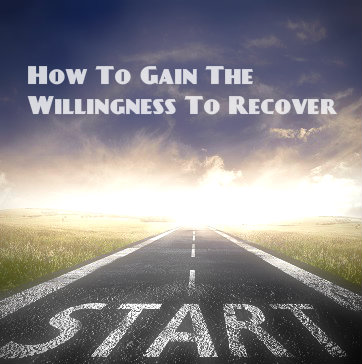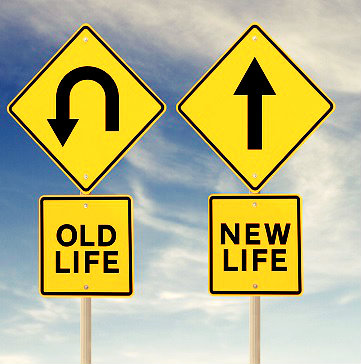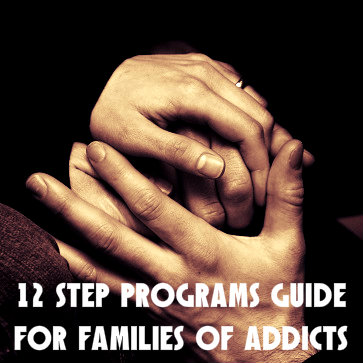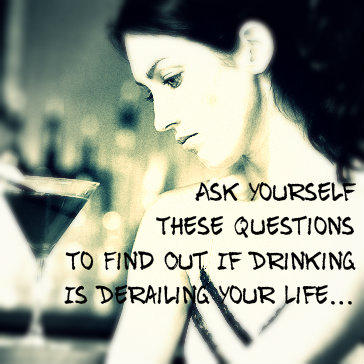Being an alcoholic means having a serious disease. Alcoholism refers to a physical dependence on alcohol. If you are an alcoholic, you experience alcohol withdrawal symptoms until you get a drink in you, you experience intense cravings for alcohol and you have developed a tolerance so that you need to drink more and more to feel the effects.
If you can’t say that all of these apply to you, yet you’ve wondered if you drink too much, you may not be an alcoholic, but you might still have a problem with drinking.
You don’t have to be a full-blown alcoholic for drinking to do its damage. Ask yourself these questions to find out if you should consider cutting back on alcohol.
Do You Drink To Feel Better?
Emotional drinking is a major warning sign. Occasionally unwinding at the end of the day with a cocktail and a group of friends is nothing to worry about, but if you need a drink to de-stress, you could have a problem. Maybe you look forward to happy hour every day because it makes you feel better and helps you relax. You should not be depending on alcohol to get you to that state of mind.
Is Your Drinking Causing Relationship Problems?
Drinking can be a major cause of stress in a relationship. Your drinking may be causing you to have more fights, it may be causing you to neglect your relationship by spending too much time out drinking, or it could be making you pass out at night and getting in the way of intimacy. Your spouse or partner might be trying to hint to you that you drink too much, or he may be telling you outright. If you get defensive immediately and refuse to change your habits, you are putting strain on your relationship.
Are You Neglecting Responsibilities Because Of Drinking?
Drinking too much may lead to some rough mornings. If this means that you are not able to get up and get your kids ready for school, or get to work on time, your drinking is interfering with responsibilities. Do you drink too much and find you can’t drive to take your kids to activities or find that you just can’t get your chores done? This is a problem and drinking is impacting your life.
Do You Drink Alone?
Drinking alone is rarely a good habit to have. If you have a drink alone every once in a while, you probably don’t need to worry, but if it is a regular occurrence, you need to rethink your drinking. You should be especially concerned if you drink alone and end up getting drunk or passing out.
Do You Feel Like You Should Curb Your Drinking But Can’t?
Maybe you have already given serious thought to your drinking. Maybe you decided that you should cut back a little so that you don’t feel so bad in the mornings or so that you have more time for your kids or spouse. Did you try to cut back and find you couldn’t do it? This is a serious sign of alcohol abuse. If you can no longer control when and how much you drink, you are headed down a dangerous path.
What To Do If You Answered “Yes” To Any Of These Drinking-Problem Questions
Any one of the signs is cause for concern. If you can answer yes to any of them, drinking is taking a toll on your life and it is time to rethink drinking. Start by talking with your partner or a close friend you trust. Having support can help you to change your habits. If that fails, consider getting professional help to make some important changes.
Read More To Find Out If Your Mom Or Wife Is Drinking Too Much
15 Jan 2014
How Willing Are You To Recover From Addiction?
“Under the lash of alcoholism, we are driven to A.A., and there we discover the fatal nature of our situation. Then, and only then, do we become as open-minded to conviction and as willing to listen as the dying can be. We stand ready to anything which will lift the merciless obsession from us.” (A.A. Twelve Steps and Twelve Traditions, 24)
Are You Ready For Recovery?
Life in recovery isn’t easy. It isn’t easy to figure out how to live without our highs. We don’t know if we can even imagine it—without them we feel raw, we feel unprotected. And then there is the sheer work of recovery. And it is work. We are expected to overhaul our lives, structuring our days around working the Steps, attending meetings, calling our sponsors and performing service. And this says nothing of the emotional work we know we’re in for. It’s painful, stressful and straining to have to face the worst parts of ourselves and our most tragic memories. Are you ready for that?
None of us are. We see the 12 Step Program before us and wonder how it would even be possible. How does anyone accomplish this? And why do they want to? Why does this seem like a better idea?
Where Do We Find Willingness To Recover From Addiction?
We are told that the only requirement for recovery is a willingness to stop doing what we’re doing. But how do we achieve this state of mind? How do we find that level of motivation? The willingness comes when we start to match up the reality of our lives in addiction with the prospect of our lives in recovery. Look honestly at the pain, the desperation, the fear, the self-loathing and the hopelessness. Is your addict life of sitting around all day getting high really the easier, more comfortable way?
We come to the point of realizing that as challenging as recovery might appear, it is something worth working toward and fighting for. Our addiction life wasn’t easier—lazier, maybe, but not easier. What we have before us is a solution, a life preserver. We have the opportunity to reach for it, and see what we’re made of, and what our Higher Power can do for us. Is it comfortable? No, but comfort doesn’t accomplish much. It’s time to get a little comfortable with being uncomfortable.
The Quest For Freedom From Addiction
We may not believe ourselves worthy or capable of great things. Understandable. But many of us can identify with the desire to be freed of pain. The addict life is killing us. If it hasn’t yet taken our bodies, it is certainly going hard after our souls. We must believe that there is something more. We may not be rich or famous, but perhaps we could be free.
This desire for freedom becomes the foundation of our willingness. We begin to see that we don’t, at this early stage, need to figure out how we are going to accomplish recovery. We see large groups of people doing this recovery thing and they don’t look that different from us. They’re not super humans or particularly special. They have stories that sound a lot like ours, actually. And they seem happy. Their eyes are clear and they’re talking about all of the miraculous changes they have experienced. They are saying, “just take this thing one day at a time.”
We don’t need to know how we will do it or how we will keep it going; we do need the willingness to say “yes” to recovery today. Are you willing?
If you’re ready, ready for a new life of freedom and sobriety, contact drugrehab.us today at 855-763-6488!
Read More About Former Addicts Becoming Advocates For Recovery
10 Jan 2014
Can Addicts Make The “Choice” To Stop Using?
“As active alcoholics, we lost our ability to choose whether we would drink. We were the victims of a compulsion which seemed to decree that we must go on with our own destruction.
Yet we finally did make the choices that brought about our recovery. We came to believe that alone we were powerless over alcohol. This was surely a choice, and a most difficult one. We came to believe that a Higher Power could restore us to sanity when we became willing to practice A.A.’s Twelve Steps.
In short we chose to ‘become willing,’ and no better choice did we ever make.” (Bill W., letter, 1966)
Have We As Addicts Lost The Power Of Choice?
 What we hear in recovery is that we have lost the power of choice with regards to our addiction. When we begin to use, we cannot stop. It isn’t that we don’t want to stop—many times we actually do want to stop very much. But we cannot. An obsession of the mind and a compulsion of the body crush any opposition we might muster.
What we hear in recovery is that we have lost the power of choice with regards to our addiction. When we begin to use, we cannot stop. It isn’t that we don’t want to stop—many times we actually do want to stop very much. But we cannot. An obsession of the mind and a compulsion of the body crush any opposition we might muster.
And then we hear about the choices we need to make to pursue recovery. But if we have lost the power of choice, how can we do anything besides surrender to the overwhelming power of addiction?
We cannot, when drinking or getting high, effectively choose to stop. But we can choose to become willing to get sober. We have seen that when alcohol, drugs or other addictions enter the picture, we lose our ability to say “no.” We can make a choice that this is a fight we’re no longer going to try to fight. We can decide to walk away altogether and never look back.
The Decision To End The Denial Of Addiction
The other choice we must make is to end our pattern of denial. How many years have we been saying there was no problem, really, or that we had this under control? Make the decision to begin looking at your life with a brutally bright light. Start to see that denial has been your defense and it’s killing you. It’s time to admit the truth. When you are ready to become honest, and to admit that you are indeed powerless, you open yourself to hope.
Stop Blaming Others For Your Addiction
As we sat languishing in our addictions we identified the people and the things we could blame for the state in which we found ourselves. It was our parents, our upbringing, our genetics, God, our bosses, spouses, kids, the government or some other institution. We thought ourselves justified: if “so and so” wasn’t the way he was or if this entity hadn’t done to us what it did, we wouldn’t be living this way. The next important choice we make is to stop blaming other people. Many people live hard lives, or have been the victims of injustice, or a bad childhood, and they aren’t drugging themselves to death. No one denies that perhaps life has dealt you a hard hand, but few will sympathize enough to say a drug addiction was a justified response. This is the path you have chosen, actually. And it is the path you can choose to get off of.
“We must never be blinded by the futile philosophy that we are just the hapless victims of our inheritance, of our life experience, and of our surroundings—that these are the sole forces that make our decisions for us. This is not the road to freedom. We have to believe that we can really choose.” (Bill W., Grapevine, Nov. 1960)
Read More About A Candid Story Of Surviving Addiction And Choosing Life In Recovery
If someone you care about is beginning to find recovery in a 12-Step Program, you may find yourself with a lot of questions. Media images of 12-Step Programs are a caricature, and from the outside, we have to admit the practices look a little strange. Is this some sort of cult? Yes, you’re happy the addict is sober and getting help, but is this how it has to be?
What Are The 12 Steps All About?
The 12-Step Program was a program of recovery developed by alcoholics for alcoholics and other addicts. The program is based upon 12 steps that help the addict to come to grips with his or her condition and establish the kind of spiritual life that will be the basis of a solid recovery and sobriety. The program recognizes addiction as a disease—an allergy of the body and an obsession of the mind. The Alcoholics Anonymous (AA) premise is based on the understanding that if someone is addicted to a particular substance or behavior, he or she will never again be able to consume that substance or engage in that behavior in a normal or healthy way. Total abstinence is the only solution.
 In most groups, members attend meetings regularly, read and study program literature, call and meet with other addicts or members in recovery and work regularly with a sponsor. Service to other addicts is of highest importance and seen as one of the keys to maintaining lasting sobriety.
In most groups, members attend meetings regularly, read and study program literature, call and meet with other addicts or members in recovery and work regularly with a sponsor. Service to other addicts is of highest importance and seen as one of the keys to maintaining lasting sobriety.
Aren’t 12 Step Programs A Little Overzealous?
It would appear that way to the outsider but, quite frankly, addiction is a little overzealous. For the non-addict it may be hard to fathom the prison and the punishment of being under the lash of a life-controlling addiction. As addicts, we have been so dominated by this cruel taskmaster that when we finally hit bottom we become willing to do whatever promises to rescue us.
And that proves to be quite a lot, as we soon find out once we’re in recovery. We believe that a powerful disease requires a powerful solution. In recovery we have to work as hard as the disease was working against us. But after a few years of sobriety many addicts come to see the program as the “easier, softer way,” when compared to the tyranny of addiction. When families see the beneficial results of program membership in their addict loved one, they too often become 12 Step supporters.
What Are The Roles Of Addict’s Loved Ones?
This will, to some degree, depend upon your relationship to the addict. For some recovering addicts, recovery needs to be a personal and private journey. They may not feel comfortable bringing others into their process, at least not in the beginning when they are yet fragile and convalescing. Don’t be offended by this; it isn’t personal. Recovery requires a lot of emotional work and some of us find we can better focus in the company of our program fellows, and perhaps apart from friends and family. Giving the addict the space he or she needs to heal can help to later guarantee closer relationships all around. Patience is needed.
It is wise, however, for the family of an addict to attend Al-Anon to learn more about the disease and how to deal with it. A family member’s addiction leaves scars on everyone. In Al-Anon you will come to better understand addiction, recovery and the 12-Step approach in addition to getting the support you need in healing from the wounds of addiction.
Read More On How 12 Step Programs Are Greatly Benefiting Teens
19 Jul 2013
Without Screening Alcohol Abuse May be Missed
Patients come into a doctor’s office and give their symptoms to the doctor. The doctor listens, nods his head, and starts to piece together the symptoms the patient is mentioning and what he thinks may be the cause of those symptoms. But sometimes the patient doesn’t share everything with the doctor and the doctor does not ask some questions that could determine the causes or aggravations of an illness.
A new study from the School of Medicine at The University of Texas Health Science Center in San Antonio reveals that some questions doctors may not be asking are related to alcohol consumption. The article, in the Annals of Family Medicine, states that doctors may miss alcoholic symptoms in three out of four patients who come into their office.
 Screening Can Provide Proper Treatment
Screening Can Provide Proper Treatment
Researchers at UT Medicine conducted a study to see how well physicians could identify patients that exhibited symptoms of alcohol abuse. Over 1,600 participants were gathered from 40 primary care practices across multiple central states.
After participants were asked questions about their drinking habits, doctors were asked to make a diagnosis of whether or not the person was at risk for alcohol abuse. Participants were asked about the frequency that they drank alcohol and whether or not their drinking caused them to be reckless to themselves or with others. Doctors then categorized them in different alcohol use groups, including non-harmful drinker or harmful drinker.
Study co-author, Dr. Barbara Turner, stated that a doctor’s hunch missed identifying three out of four participants at risk for alcohol abuse. When doctors did suspect a person might be abusing alcohol though, the doctor was usually right.
Excessive Alcohol Consumption Hurts in Many Ways
Study authors believe that if patients were screened for their drinking habits that doctors may be able to help treat much more than alcoholism. High blood pressure, diabetes, liver disease, and some cancers have been connected to excessive drinking of alcohol. The 2011 National Health Interview Survey stated that over 85,000 people die each year from a circumstance where alcohol was misused.
Earlier studies reveal that when doctors have been able to identify harmful alcohol consumption habits in their patients, their patients decreased their alcohol consumption and improved their lives. Doctors provided brief counseling sessions to help their patients succeed in alcohol reduction.
Changing Procedures
Doctors can only treat what they see that needs to be treated. A screening procedure to help them identify a patient’s possible problems with alcohol use may help them better fully treat their patient.
Dr. Turner suggests that doctors screen their patients regularly to identify any changes in their drinking habits. A person may start drinking more heavily after both good and bad times like the following:
- Divorce
- Death of a loved one
- Loss of a job
- A new job or promotion to be social with new colleagues
- Celebrating with friends
If doctors catch harmful drinking patterns early, they may help prevent risky actions and future health problems in their patients.
The college years are filled with opportunities to compete. From academic contests to dorm room antics, there is a drive on campus to define hierarchies and social order. Even in college partying, where the scene may seem to be much more chaos and order, there are social ordering activities taking place. Drinking games are often used to show how a person handles alcohol or can retain their cognitive abilities while under the influence.
Previous studies have shown that engaging in drinking games can predict whether a college student will drink heavily. However, little is known about whether the type of drinking game will affect how heavily a student will drink. Recently a team of researchers examined various drinking games and their relationship to the drinking behaviors of college students (LaBrie, Ehret & Hummer, 2013).
The participants were recruited through two universities located on the west coast. They were invited to participate in a web-based screening. The researchers used the results to include only the participants who reported consuming at least one drink per week, resulting in 3,421 participants or 68.3 percent of the respondents to the survey.
The participants were asked about demographics, including whether or not they participated in the Greek system and also were asked about their drinking game activities. The researchers asked the participants how many days they participated in drinking games, the games played and the alcohol consumed on the occasions when the games were played.
Alcohol Games leading to Alcohol Abuse and Addiction
 To get an understanding of the various games the students mentioned, the researchers used the Internet to search descriptions of the games. There were 100 distinct games coded by the researchers, distributed into five categories.
To get an understanding of the various games the students mentioned, the researchers used the Internet to search descriptions of the games. There were 100 distinct games coded by the researchers, distributed into five categories.
The results showed that competition games were the most popular games, followed by chance games. The majority of respondents indicated that the competition games were also the games in which they drank the most alcohol.
Peak drinking games were reported differently by gender, race and Greek status. Students who were Caucasian males who participated in the Greek system were most likely to report peak drinking connected with competition games. The highest number of drinks associated with a peak drinking game was found to occur during extreme consumption games.
The authors note several limitations associated with the findings. For instance, the results were based on self-report and suffer the usual possible problems associated with recall bias. In addition, the question related to drinking games was open-ended and may have affected how the students responded.
The findings of the study provide new insight into the influence that the atmosphere and culture of a college campus and its traditions relating to drinking games may impact students’ drinking behaviors. It may serve to educate students about the risks of engaging in tempting competition that leads to heavy drinking.
Alcohol leads to more than addiction, but medical issues too. Read: Alcohol, a Preventable Cancer Risk ‘Hiding in Plain Sight’
25 Mar 2013
Topiramate Treatment for Alcoholism
Topiramate is an anticonvulsant medication used to treat seizures stemming from the presence of epilepsy or a separate seizure disorder called Lennox-Gaustaut syndrome; in addition, doctors frequently prescribe the medication in order to prevent the return of symptoms in people with a history of migraine headaches. According to a variety of scientific studies conducted in the 2000s, topiramate can also help doctors treat people with alcoholism by decreasing alcohol cravings and promoting a decrease in alcohol intake. Unlike other medications used to treat alcoholism, topiramate can be successfully prescribed to people still actively consuming large amounts of alcohol.
Read More
Posttraumatic stress syndrome and substance abuse disorders are among the hardest mental disorders to treat. People with posttraumatic stress disorders often spend years in psychotherapy without making significant progress in alleviating their symptoms, which can be debilitating enough to affect their everyday lives. Those with substance abuse disorders can go through expensive residential addiction treatments, and then relapse into their old lifestyles.



